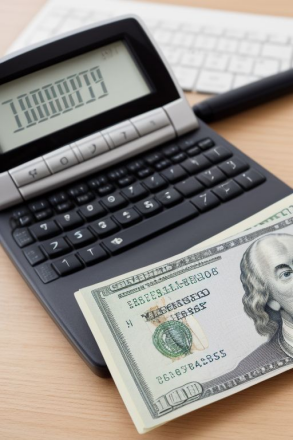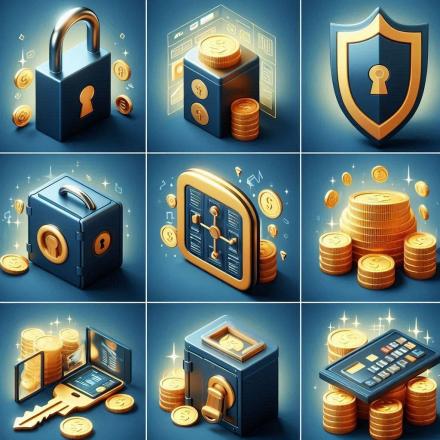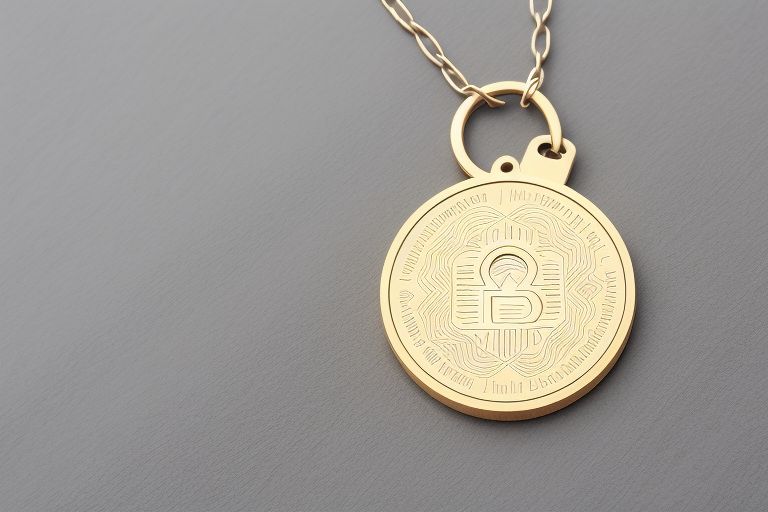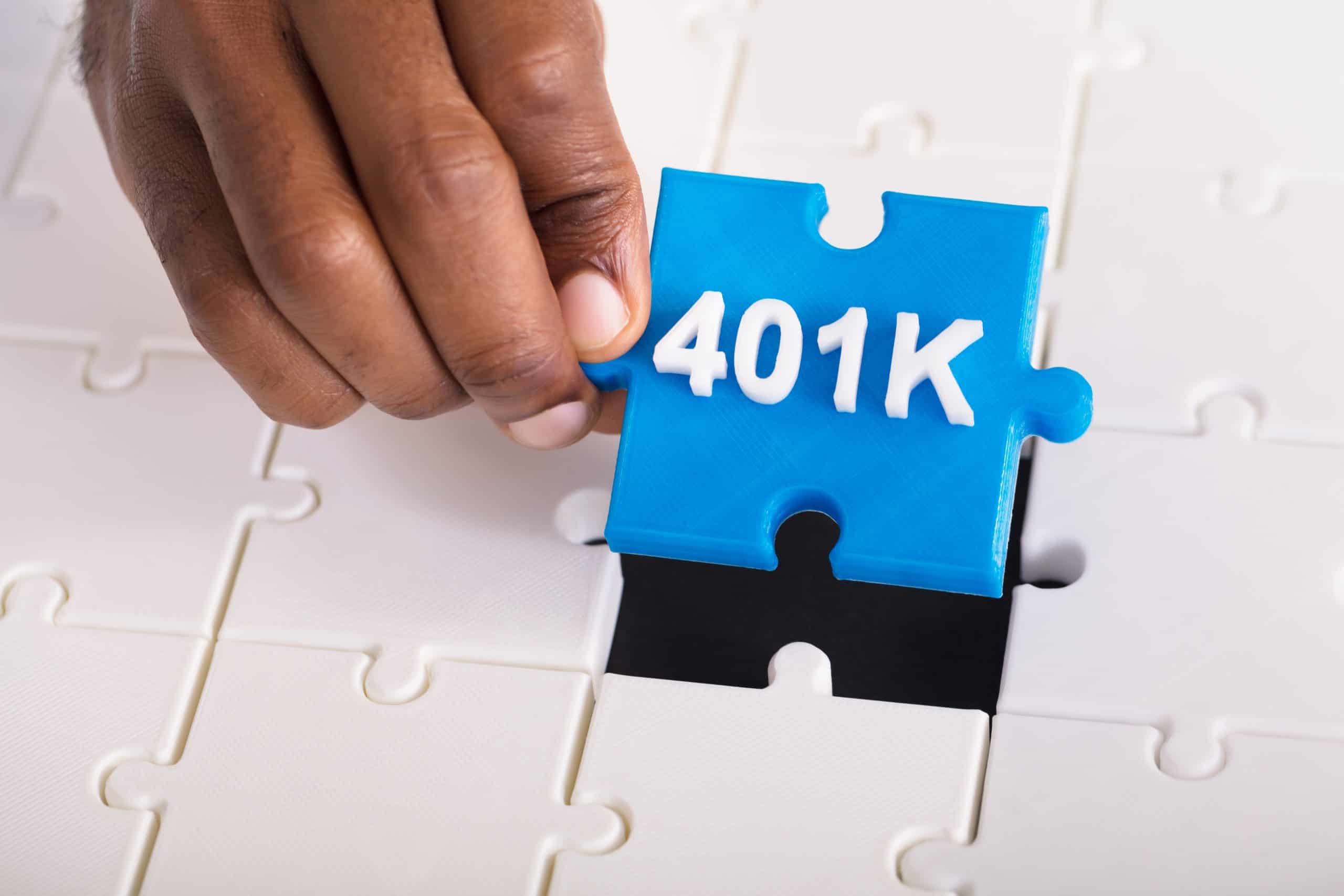In today's world of digital existence, it has become the more imperative to protect your financial details. Cyber fraudsters never stop discovering newer methods and techniques by which they can access your data and make away with your hard-earned money. Knowing about such threats and how you can secure your assets is thus a must-do. Below we will discuss some action-proven tips which will help you in securing your financial details as well as letting you save yourself from online crimes.

The Growing Threat of Digital Financial Attacks
As our lives go online, so do our finances. But the rise of digitization brought new sources of vulnerability, as cyber attacks on financial institutions have hit a record high. The 2022 cost of a data breach report by IBM, reflects the average cost of financial data breach is about $5.97 million- one of the highest across industries. Individual consumers are also at significant risk". The FBI's Internet Crime Complaint Center says that in only 2021, over 800,000 cybercrime complaints happened with total losses over $6.9 billion.
Important Financial Security Tips
Let's get into some practical tips that will secure your finances for those digital thieves.
- Use Different and Unique Passwords for Each of the Accounts: Your password can be the primary line of defense against hacking. A strong and one-of-a-kind password might be an effective way to block unauthorized access to your accounts. Avoid using obvious words such as "123456" or "password." Instead, go for a random combination of letters, numbers, and symbols. Take a minimum of 12 characters. Important tip here is to use a password manager to store and manage sensitive data securely. Research has shown that users who apply password managers are 30% more likely to use complex passwords, which means account breaches are less likely to happen.
- Apply Two-Factor Authentication (2FA): Hence, two-factor authentication will bring in another security layer to your account; it shall ask you to authenticate with another gadget, such as your phone. Thus, even if the hacker can secure the password, he will not access your account without the other verification. According to Google, enabling 2FA can block around 96% of mass phishing attempts and over 76% of targeted attacks. These days, many financial institutions include 2FA as a default feature. Activate it whenever possible.
- Frequently Check Your Accounts: Check your accounts periodically. This will help you catch unauthorized transactions early. Look for suspicious activity, including unexpected charges or changes in the account details. If caught fraudulently early enough, you will be able to minimize the damages and inform your credit card company or bank immediately.
- Phishing Scams: This is one of the most common cybercrimes, where attackers assume the identity of legitimate companies in a bid to trick you into revealing sensitive information. In its 2022 data breach investigations report, Verizon indicated that over 36% of data breaches are caused by phishing. So, be aware of text messages or emails that ask you to give personal kind of information. Check authenticity of the sender's email address and only click on hyperlinks if you know them to be safe. Bank rarely ever asks you to input your information over an email or SMS.
- Use Secure Wi-fi Connections: Do not access data and information that contains sensitive financial data over a public Wi-Fi connection. Such networks are easy to breach. Access data with a secure, private Wi-Fi connection or virtual private network. Public Wi-Fi is said to have a 50% higher likelihood of being hacked by cybercriminals due to its weak security. It is much harder for hackers to intercept data encrypted with a VPN.
- Install and Update Security Software: Antivirus and anti-malware software will protect you from most forms of cyber attacks. Ensure your software is always upgraded to be aware of newest threats. You also need to install firewalls to your devices to block the attackers from reaching your network.
- Update Your Devices: Updating your devices might not seem like much, but most software updates contain patches for security flaws. Many hackers break in through the use of older, outdated software, which sometimes leaves them open to attack.
- Secure Your Social Media Profiles: Over-sharing on social media may reveal to hackers where you live, your name or any other identifying information, which may add to their clue for guessing your security questions. Most people unwittingly provide security- question answer material-in the hopes of being discovered, like birth dates or cute pet names. Tip: Keep your profiles private, limit what you share, and don't use personal details in security questions. 9. Be a careful reader of your financial statements Check your bank statements and your credit card statements on a regular monthly basis for any sign of fraud. You are probably looking for large charges. However, cyberthieves typically first test the waters with small amounts before going on to other bigger heists.

Measurable Gains of Safe Information Financial
These financial security tips can save you money, time, and stress in the long run. Javelin Strategy & Research conducted an identity fraud study in 2022. It reflects those who identify fraud within 24 hours can limit their losses to about $300, with an average of $1,200 for those who take a week or more to suspect suspicious activity. Being vigilant and actively securing your accounts mitigates the possibilities of losing money.
Fraud Recognition and Reporting
Fraud alert service; report your suspicious activity to the bank or credit card company promptly. Most financial organizations have fraud protection, but you need to act quick for the protection to last. Additionally, freeze your credit if you feel that your information has been compromised.
Future Implications
This is the world of growing digital threats, and after how many robberies, financial security is no longer optional but necessary. Using these guidelines and staying vigilant, you would keep your assets secure and enjoy peace of mind in this digital world. Small steps you take today can avert huge losses and keep your financial future secure.
Manage your digital security and protect your financial details. As the adage goes, "A little prevention may be worth a pound of cure"-little effort now might help you save from potential hardships later on.


The Future of Investing: How Blockchain Is Redefining Asset Ownership

How to Maximize Your 401(k) Contributions

The Impact of Technological Innovations on Traditional Banking Models

Understanding the Basics of Financial Ethics

The Intersection of Technology and Regulation in Banking

The Financial Impact of Climate Change: How to Invest in a Warming World

The Role of Artificial Intelligence in Financial Trading
